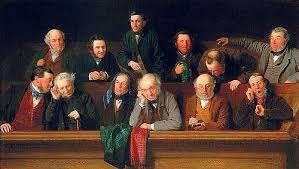
Breaking News
 Lumber Prices Are Flashing a Warning Sign for the U.S. Economy
Lumber Prices Are Flashing a Warning Sign for the U.S. Economy
 The Cost Of Living The American Dream For A Lifetime Has Reached A Whopping 5 Million Dollars
The Cost Of Living The American Dream For A Lifetime Has Reached A Whopping 5 Million Dollars
 Reverse Erectile Dysfunction FAST (Without Viagra)
Reverse Erectile Dysfunction FAST (Without Viagra)
 Who's Buying Up America's Farmland? The Land Grab You Need to Know About
Who's Buying Up America's Farmland? The Land Grab You Need to Know About
Top Tech News
 Methylene chloride (CH2Cl?) and acetone (C?H?O) create a powerful paint remover...
Methylene chloride (CH2Cl?) and acetone (C?H?O) create a powerful paint remover...
 Engineer Builds His Own X-Ray After Hospital Charges Him $69K
Engineer Builds His Own X-Ray After Hospital Charges Him $69K
 Researchers create 2D nanomaterials with up to nine metals for extreme conditions
Researchers create 2D nanomaterials with up to nine metals for extreme conditions
 The Evolution of Electric Motors: From Bulky to Lightweight, Efficient Powerhouses
The Evolution of Electric Motors: From Bulky to Lightweight, Efficient Powerhouses
 3D-Printing 'Glue Gun' Can Repair Bone Fractures During Surgery Filling-in the Gaps Around..
3D-Printing 'Glue Gun' Can Repair Bone Fractures During Surgery Filling-in the Gaps Around..
 Kevlar-like EV battery material dissolves after use to recycle itself
Kevlar-like EV battery material dissolves after use to recycle itself
 Laser connects plane and satellite in breakthrough air-to-space link
Laser connects plane and satellite in breakthrough air-to-space link
 Lucid Motors' World-Leading Electric Powertrain Breakdown with Emad Dlala and Eric Bach
Lucid Motors' World-Leading Electric Powertrain Breakdown with Emad Dlala and Eric Bach
 Murder, UFOs & Antigravity Tech -- What's Really Happening at Huntsville, Alabama's Space Po
Murder, UFOs & Antigravity Tech -- What's Really Happening at Huntsville, Alabama's Space Po
Grand Jury Nullification in Washington, D.C.

Most libertarians are familiar with the concept of jury nullification. Let's review that principle in the context of the federal government before we address what has been occurring in our nation's capital with grand-jury nullification.
The Fifth Amendment prohibits the federal government from depriving any person, including both foreigners and American citizens, of life, liberty, or property without due process of law. Due process is a term that stretches all the way back to Magna Carta in the year 1215. Over the centuries of resistance by British subjects to the tyranny of their own government, due process of law came to mean, at a minimum, formal notice of criminal charges and trial by jury. Due process of law was considered so important by our American ancestors that they insisted that it be expressly guaranteed by the Fifth Amendment to the recently adopted U.S. Constitution.
With the Fifth Amendment, the federal government was prohibited from arbitrarily incarcerating people, killing them, or confiscating their property, even in national "emergencies," to maintain "law and order," or to keep people "safe and secure." Federal officials were first to provide the accused with a formal notice of the particular law that the person had supposedly violated. That's what a grand-jury indictment does. But the indictment is simply an accusation. It does not constitute any evidence that the person has, in fact, committed a crime.
The federal government is then required to prove a person's guilt with competent and relevant evidence. That's what a trial is for. The burden of proof in a criminal case is a heavy one — "beyond a reasonable doubt."
Who decides the issue of guilt in a federal criminal prosecution? It can be the judge but the Fifth Amendment gives the accused the right to have a jury, not the judge, make the decision. The jury is composed of regular citizens from the community who are chosen at random.

 Tiny briefcase engine boosts EV range beyond battery power
Tiny briefcase engine boosts EV range beyond battery power 

